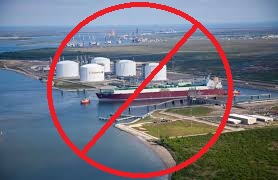Booms and Busts: The Impact of West Virginia's Energy Economy
January 29, 2013An Oil Boom Takes a Toll on Health Care
January 31, 2013Its contents remain mostly a mystery. But fracking wastewater has revealed one of its secrets: It can be highly radioactive. And yet no agency really regulates its handling, transport or disposal. A four-part series on radiation in fracking wastewater by Rachel Morgan of the Beaver County Times.
Part 1 – Jan. 24, 2013
Fracking Wastewater can be Highly Radioactive
Randy Moyer hasn’t been able to work in 14 months.
He’s seen more than 40 doctors, has 10 prescriptions to his name and no less than eight inhalers stationed around his apartment.
Moyer said he began transporting brine, the wastewater from gas wells that have been hydraulically fractured, for a small hauling company in August 2011. He trucked brine from wells to treatment plants and back to wells, and sometimes cleaned out the storage tanks used to hold wastewater on drilling sites. By November 2011, the 49-year-old trucker was too ill to work. He suffered from dizziness, blurred vision, headaches, difficulty breathing, swollen lips and appendages, and a fiery red rash that covered about 50 percent of his body.
CLICK HERE to read the full story.
Part 2 – Jan. 26, 2013
So Who is in Charge, Anyway?
With new evidence pointing to potentially dangerous levels of radiation in fracking wastewater, questions arise over just who regulates this stuff.
The short answer: No one, really.
Does the U.S. Environmental Protection Agency or U.S. Department of Transportation step in, because this water is often transported across state lines? Does the Pennsylvania Department of Transportation regulate the tanker trucks being driven around on the state’s roads? What about the Nuclear Regulatory Commission, which monitors every radioactive molecule emanating from nuclear power plants?
The answer, it seems, is a resounding no from every regulatory body except perhaps from the Pennsylvania Department of Environmental Protection. State DEP officials say that yes, they are in charge of regulating the handling, transport and disposal of wastewater from natural gas drilling. But those same officials said they do not measure radium concentrations in fracking wastewater, a position they held until their announcement Thursday that they plan to launch a yearlong study of radioactive waste from the drilling procedure formally known as hydraulic fracturing.
CLICK HERE to read the full story.
Part 3 – Pending
Part 4 – Pending



